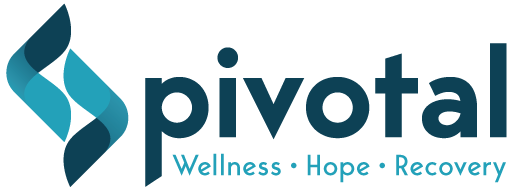CCBHC
Certified Community Behavioral Health Clinic
What is CCBHC?
At Pivotal, we are a Certified Community Behavioral Health Clinic (CCBHC). A CCBHC clinic combines integrated behavioral health with physical health care, provides increased access to high-quality care, promotes the use of evidence-based practices, and establishes a set of standards and consistency of programs and care. Specifically, Pivotal operates as a CMS CCBHC Demonstration and we welcome you to learn more about that directly from the Michigan Department of Health & Human Services (MDHHS).
As a CCBHC, we are proud to provide comprehensive mental health and substance use disorder services to persons in need, regardless of their ability to pay, including those who are underserved, have low incomes, are on Medicaid, insured or uninsured, and are active-duty military or veterans. Wellness, hope, and recovery are available to all!
Ready to Begin Your Journey?
If you are ready for wellness, hope, and recovery, please call us at 269-467-1000 and a member of our Access Team will be honored to assist you! All calls are private, confidential, and are the starting point to have us learn about your needs, concerns, and the individualized help you are seeking.
Offering A High Standard Of Care
The Benefits of a CCBHC
- We assist citizens in improving their health by making it easier to get care.
- Keep people from going into the hospital when they don’t need hospitalization.
- Services are available to all, regardless of ability to pay or location.
- 24/7 mobile crisis response.
- Integrate evidence-based addiction and mental health services, including medication-assisted treatment (MAT) for addiction.
- Provide high-quality care, with timely access, quality reporting, and staffing and coordination of social services, criminal justice, and education systems.
- Build better relationships between hospitals and community health care providers.
Our 9 Core CCBHC Services
- Crisis mental health services, including a 24-hour mobile crisis unit, emergency crisis intervention services, and crisis stabilization.
- Screening, assessment, and diagnosis, including risk assessment.
- Patient-centered treatment planning, including risk assessment and crisis planning.
- Outpatient mental health and substance use services.
- Outpatient clinic primary care screening and monitoring of key health indicators and health risk.
- Targeted case management.
- Psychiatric rehabilitation services.
- Peer support, counselor services, and family supports.
- Intensive, community-based mental health care for members of the armed forces and veterans.
